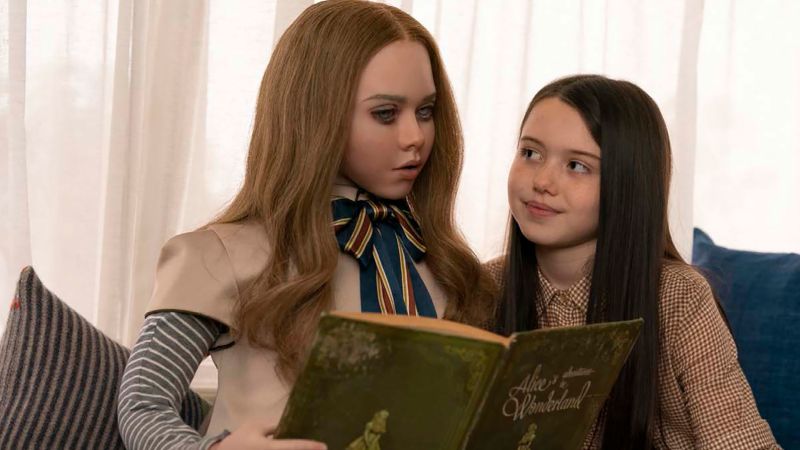
CNN
—
The lifelike but blank stare. The almost-but-not-quite accurate proportions. The vacant smile.
Dolls are meant to be nothing more than playthings for children, but it must be said: They’re creepy.
Fodder for more than one successful horror movie franchise (hello, “Child’s Play” and “Annabelle”), the theme appears ready for an upgrade with the upcoming release of Universal Studios’ “M3GAN,” a new thriller that recently spawned memes aplenty following the release of its first trailer and even started a Twitter war between doll-sized titan of terror Chucky and terrifying new arrival Megan.
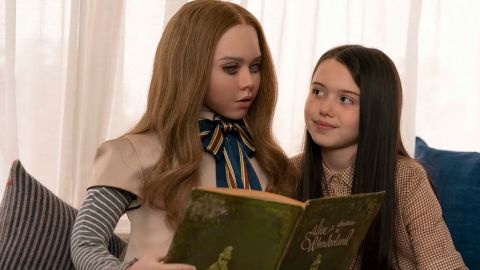
The movie follows an engineer and programmer – played by Allison Williams of “Get Out” fame – who designs the “perfect toy” for her niece (Violet McGraw from “The Haunting of Hill House”), only to discover that the bizarrely lifelike and hi-tech doll will stop at nothing to protect her new friend.
“M3GAN” doesn’t hit theaters until January, but the movie’s quick, zeitgeist-piercing creepiness as seen in the teaser is something to behold.
“I was always thinking of her as real,” “M3GAN” director Gerard Johnston told CNN of his approach. “And that actually became quite interesting. When we got into pre-production, [and] we had to physically bring her to life, trying to make sure that she appeared to be without limits, I always thought of her as a real character.”
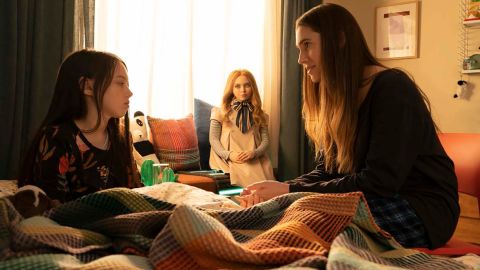
Johnstone set out to make Megan (short for “Model 3 generative android,” Williams explains in the trailer) more than just a creepy inanimate doll. And while he couldn’t directly speak to how his titular character was created – two actresses share the credit for bringing the character to life on screen, including one for her voice – the finished result in the teaser is more than unsettling, especially when she runs on all fours like a dog or dances gracefully in a hallway before using an office tool to wreak bloody havoc.
“There was just an excitement about creating the doll itself and making something that people hadn’t seen before, making something that just went further into the uncanny valley,” Johnstone said.
There is a Japanese theory stemming from Sigmund Freud’s concept of the uncanny, which describes the psychological experience of something familiar that is slightly altered, thereby creating an unsettling or even horrifying effect.
Johnstone referenced the theory as one of the primary inspirations for Megan’s clear and apparent creepiness.
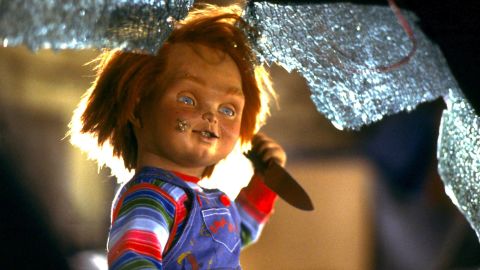
“When something looks real, but we all know it isn’t quite real, it’s immediately disturbing and unsettling,” he observed. “And the more real the doll is, the more you have that effect… I think it is just that thing of the proportions being almost right. I don’t know enough about exactly why audiences, why human beings have that reaction. We just know that they do, and that it would be a good thing to explore in a movie.”
Of the menacing character at the center of his story, Johnstone said, “sometimes you have to look twice at her to realize it’s actually a doll. I think that was the big inspiration. We thought we would have something special if we could just push this as far as we can go.”
And just like Pennywise the Clown is so terrifying, taking something as familiar and sweet as a doll and making it threatening is fertile territory for genuine scares.
“When you consider dolls as a subgenre of horror, you have to remember that horror by its definition is a genre of otherness,” said Michael Varrati, filmmaker and co-host of the Midnight Mass podcast. “In the case of [creepy doll films], I think what’s being othered is purity or innocence, because when we look at dolls, we tend to think of them by and large as children’s objects, and representative of childhood, and dolls as the companions of children. And this is a time of innocence, where life should not be fettered by the evils of the world. So to take this thing that is a symbol of innocence, and distort or pervert it in some way, therein lies the terror.”
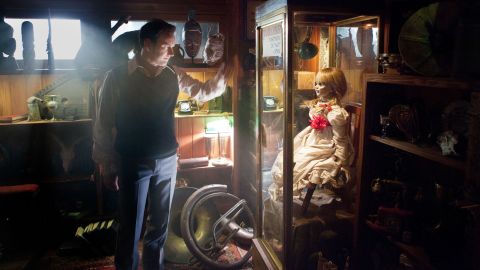
That subgenre is rife with scary examples, from 1989’s “Puppet Master” to the ventriloquist dummy nightmare that was “Dead Silence” in 2007. Varrati also points to more esoteric but notable entries that influenced the movies that followed, including “Trilogy of Terror” from 1975 and 1986’s “Dolls” from director Stuart Gordon.
“We have this fascination with childlike things going wrong. It’s a time-honored tradition in horror,” Varrati said.
As for “M3GAN,” which director Johnstone summed up as “an analogy about parenting in the age of iPads,” time will tell if the actual film is as creepy as the internet-breaking first trailer. But it looks promising, since the movie seems to artfully skirt the line between creepy doll and killer robot movie, the latter being another subgenre that has earned a hallowed place in science fiction and horror (Anyone remember Skynet, the nefarious A.I. from the “Terminator” films?).
“Because she is a living doll… [‘M3GAN’ is a] cautionary tale about A.I. going rogue,” Johnstone said.
Like creepy doll movies, stories that explore evil and/or self-aware technology call to mind the troublesome and blurry line where the inanimate object ends, and where something akin to humanity – but somehow different – begins.
“It came down to the way we brought Megan to life,” Johnstone said. “She doesn’t over animate, she’s almost reptilian, and [it’s] her stillness I think that makes her even more scary, because she doesn’t have to do much. She just has to turn her head an inch.”
But don’t take the director’s word for it – take Megan’s herself, in the chilling trailer on YouTube with 17 million views and counting.
“Part of the fear is that these things are so very human,” Varrati said. “Where does humanity actually begin? Or where does the device or the app stop, and something else start?”
